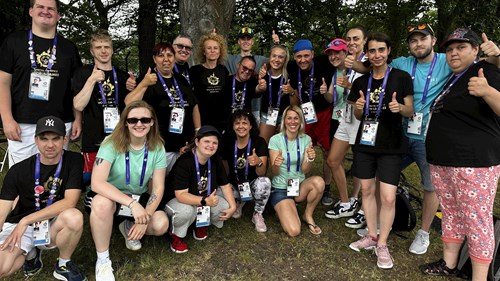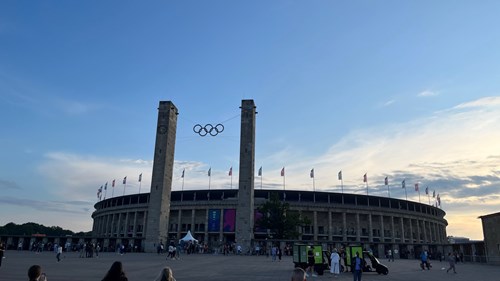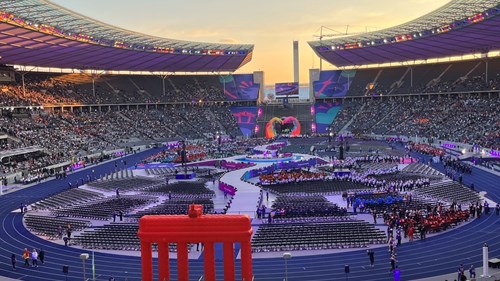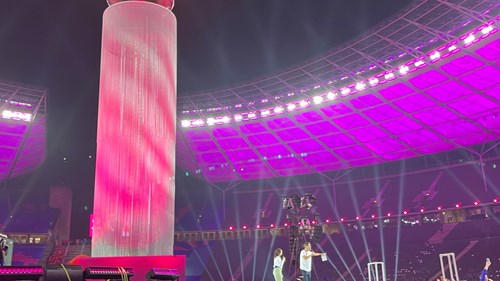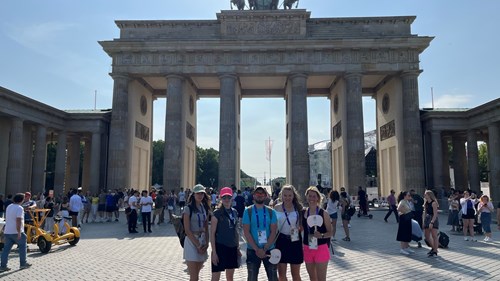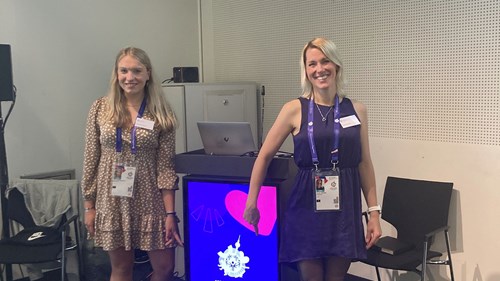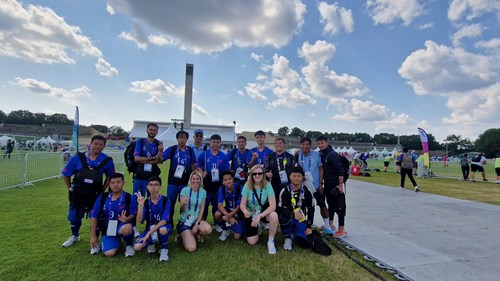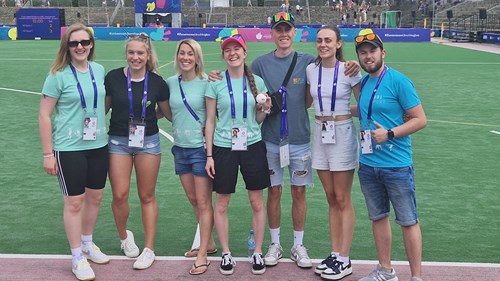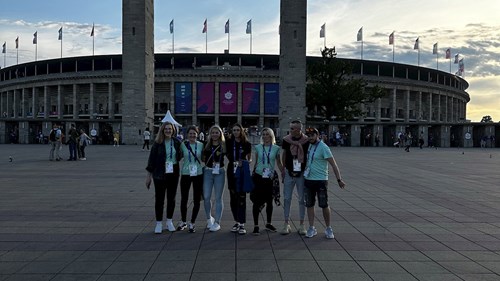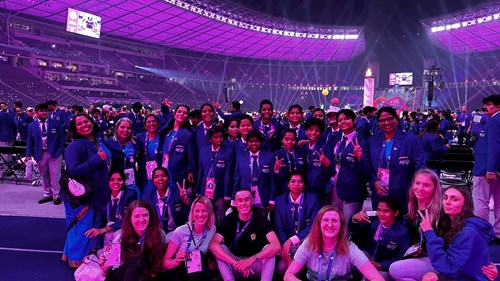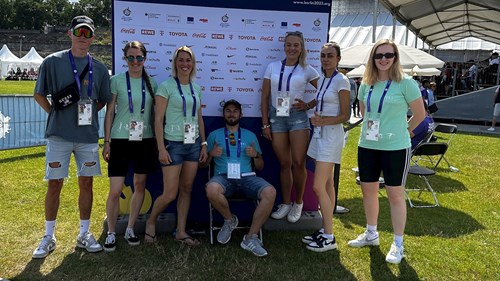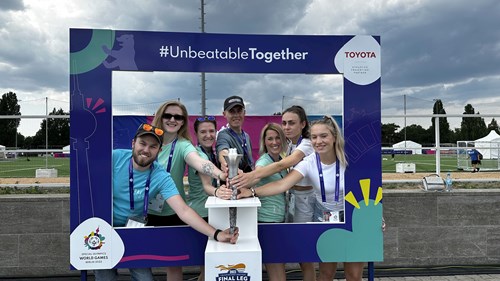
Our students took part in research at the Special Olympics World Summer Games Berlin 2023
In addition to the Czech national team, a Czech research team, consisting of students from the Faculty of Sports Studies at Masaryk University in Brno and the Faculty of Education at the University of West Bohemia in Pilsen, led by Professor Hana Válková, went to the World Games Special Olympics 2023, one of the biggest sporting events of 2023. The task of the scientific team was to analyse the cooperation and activity of players during futsal matches in the framework of Special Olympics Unified Sports®, where healthy and mentally disabled athletes always compete together in one team at the world level.

The fact that this was one of the biggest sporting events of the year is evidenced by the following figures. Over 7,000 athletes from more than 190 countries from all over the world participated in the Special Olympics World Games in Berlin. A total of 26 sports were competed in, involving over 3,000 coaches and more than 20,000 volunteers. On Saturday 17 June 2023, the Opening Ceremony kicked off with the lighting of the Olympic Flame at the Olympic Stadium in Berlin, where the Federal President of Germany, Frank-Walter Steinmeier, opened the nine thrilling days of competition with a breathtaking show. The Games were officially closed on Sunday 25 June 2023 at the Brandenburg Gate in the historic part of Berlin.
Fans had the opportunity to support the 56 nominated Czech national athletes who competed for medals in 11 different sports disciplines. It must be added that every member of our national team deserves huge recognition and congratulations, because in addition to 26 medal placements, they took many beautiful 4th and 5th places, personal bests were set and everyone performed almost beyond their capabilities. More detailed information about the Czech delegation at the Games can be found on the Special Olympics Czech Republic Facebook page or on the organization's website.
However, the Czech research team also gave great performances during the nine days of the Olympic competition, which were many times also at the edge of human capabilities. The students honestly analysed directly at the stadium all the futsal matches that took place during the World Games. They were not discouraged by the tropical weather or the torrential downpour. In their free time, they supported the Czech team at all available sports venues, cheered and shared emotions with our disabled athletes and their coaches. Besides, they attended scientific meetings, meetings and lectures for young researchers, represented FSpS MUNI and PDf ZČU at conferences and actively presented their research to coaches of individual futsal teams. Thanks to their hard work, enthusiasm and research passion, not only all coaches of the analysed futsal teams, but also other researchers and the Special Olympics management itself at the international level have shown interest in the results and publications.
You may be asking – what is so interesting about the analysis of the cooperation and activity of the futsal players... or wondering if everyone was interested in the results just as a courtesy?
That's also possible of course 😊, but in the context of Special Olympics Unified Sports® it's a really hot and thorny topic. The idea behind Special Olympics is to create opportunities for people with intellectual disabilities to play sports, share emotions, make friendships and develop comprehensively just like their peers without disabilities. Special Olympics Unified Sports® is a unique concept where able-bodied and developmentally disabled athletes compete together on the same team. Therefore, in the context of fair play, a team's win or loss should not be determined solely by the activity and athletic performance of the athletes without disabilities, nor should the idea and mission of Unified Sports, i.e. the cooperation of the entire team and the inclusion of individuals with intellectual disabilities, be preserved. Unfortunately, at world level, this is often crowded out by competition and the desire for medals at any cost. There is a lack of documentation for referees about permitted and non-permitted activity and player cooperation, which makes stricter rule setting and subsequent sanctions impossible.
Let's be surprised if the plans will be implemented and the FSpS MUNI students will have the privilege to help athletes with disabilities so that not only futsal, but also other team sports within Special Olympics Unified Sports®, can be a little more in line with the idea of fair play again, even at the highest world level.
Research Team Leader PhDr. Tereza Možná
Faculty of Sports Studies MUNI
Department of Physical Education and Social Sciences
